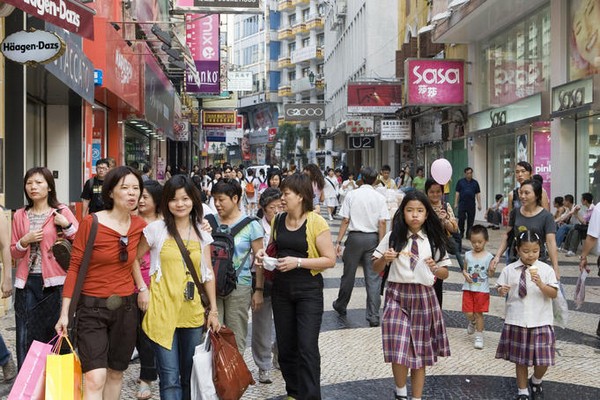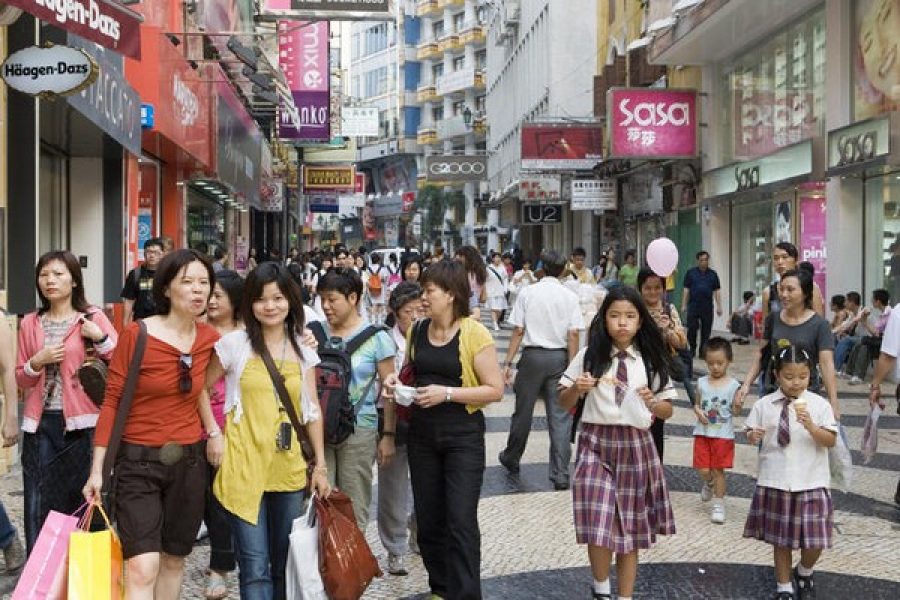Macau’s consumer confidence levels dropped in the first quarter compared to the previous quarter, according to a survey conducted by the Macau University of Science and Technology (MUST) between March 16 and 25.
However, the private university’s survey shows that there was a slight increase in confidence in buying real estate, despite the fact it still has the lowest score compared to the survey’s other indicators.
The findings of Macau Consumer Confidence Index (MCCI) for the first quarter were released during a press conference at the MUST campus on Wednesday.
Chan Lai Kow, director of the MUST Institute for Sustainable Development who headed the survey, said researchers used a computer-assisted telephone interview (CATI) system to interview 1,007 local residents aged 18 or above, asking them to rank their level of confidence in the following sub-indices: local economy, employment, prices, living standard, buying real estate, and stock investments.
Chan said the respondents were asked to rank the indicators on a scale of 200, with zero meaning no confidence and 200 indicating full confidence.
He said the results show that the overall score of the city’s consumer confidence stood at 85.4 in the first quarter, a 2.3 percent decrease compared to the fourth quarter of last year.
Chan said that while the confidence levels for employment and the local economy remained the two highest sub-indices, both also saw a drop.
For employment, the confidence level fell from 124.9 in the fourth quarter of last year to 116.9 in this year’s first quarter. Chan said the confidence level for the local economy fell from 108.6 to 99.4. He pointed out that it was the first time since 2009 that it has dropped below 100. The confidence level for stock investments also decreased slightly.
In contrast, consumers’ confidence level for prices rose from 59.7 to 66.5, while the ones for living standard and real-estate purchases increased slightly.
Chan said that, generally speaking, respondents with higher education backgrounds tend to have higher confidence levels. He also suggested that the government should further improve regional co-operation, emphasise education and training, and encourage youth entrepreneurship.
The findings also show that respondents aged 50 to 59 and those whose monthly income ranges between 5,000 and 9,999 patacas have the lowest levels of confidence. Antony Chu Sam Iong, project co-ordinator of the MUST Institute for Sustainable Development, suggested that respondents aged 60 or above or those who earn less than 5,000 patacas per month may receive government assistance. He said they may have lower expectations about their living standard and thus have a higher level of confidence.
“Once these people enter the [social] safety net, their level of confidence may not be that bad. In contrast, for those who earn between 5,000 and 9,999 patacas [per month], they may not be eligible for government support and since their income is not high, it may affect their levels of confidence,” said Chu.
“The same thing applies to those aged between 50 and 59. They haven’t retired yet, their educational level may be low and they may not be able to earn a higher income… so their confidence levels are low. But for the higher age groups, they may receive pensions or various allowances after they retire so their confidence level gets higher.” (macaunews/macaupost)






